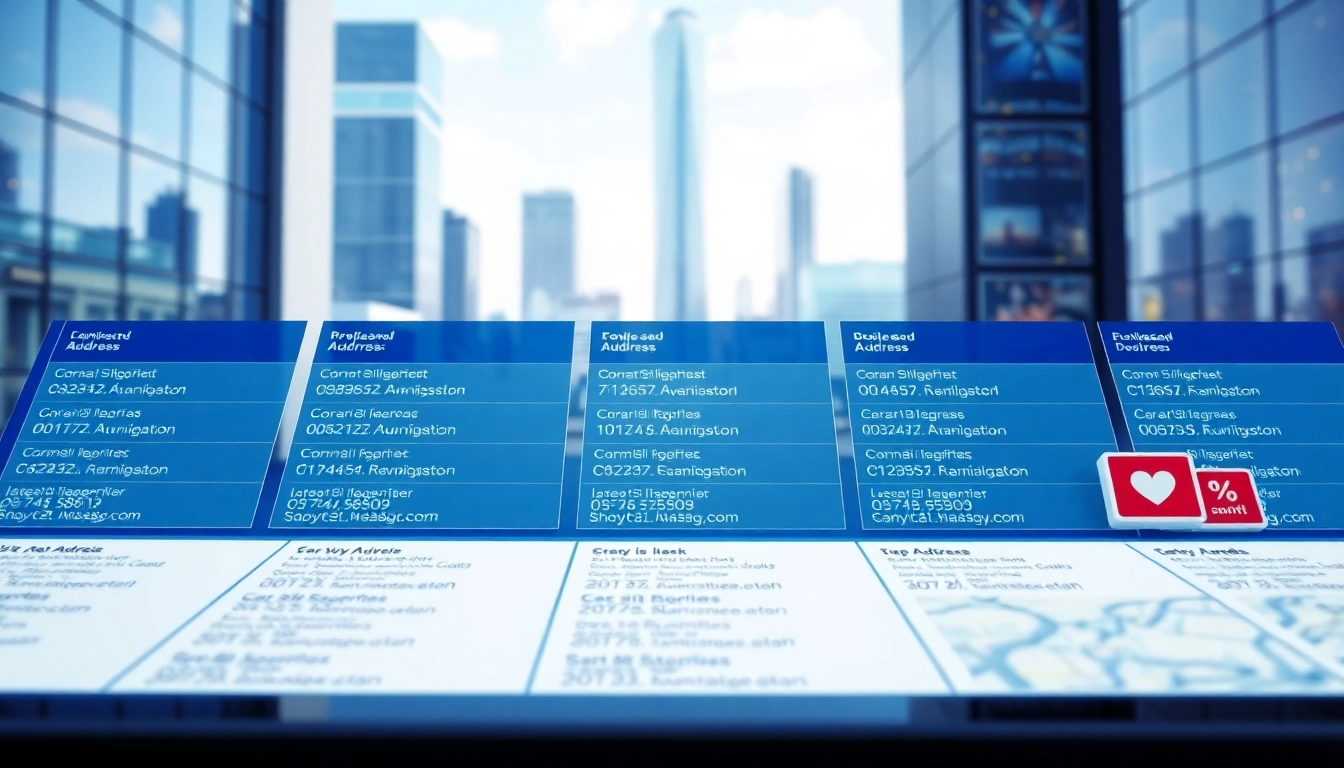Understanding Moving Services
When it comes to relocating, whether it’s to a new apartment or across the country, understanding the various moving services available can make a significant difference in the experience. Moving can be daunting, but with professional movers, the burden can be greatly reduced. https://bennettsmoving.com/ is an excellent resource for those looking to navigate these complexities effectively.
What to Expect from Moving Experts
Professional movers bring a wealth of experience and know-how that can streamline the moving process. They understand the logistics involved, from packing to transportation, ensuring that your belongings are treated with care. You can expect detailed timelines and clear communication regarding the status of your move. Moreover, they offer tailored services that accommodate your specific needs, whether you require full-service relocation or assistance with just heavy lifting.
Types of Moves Offered
Moving services can be broadly categorized into different types, and understanding these can help you choose the most suited services for your current needs:
- Residential Moves: This encompasses personal moves from one home to another, whether local or long-distance.
- Commercial Moves: These involve relocating businesses, including office relocations, which require careful planning and execution to minimize downtime.
- Long-Distance Moves: If you are moving to another state or across the country, specialized long-distance moving services can help ensure safe transport of your belongings over great distances.
- Specialized Moves: Some moving companies offer services for the transportation of specific items such as pianos, artwork, or antiques, which require extra care and unique handling techniques.
Benefits of Choosing Professional Movers
Enlisting professional moving services offers numerous benefits that can significantly enhance the moving experience:
- Efficiency: Experienced movers understand how to pack efficiently and manage logistics effectively, allowing for quicker transition times.
- Insurance Protection: Professional moving companies offer various forms of liability coverage, providing peace of mind during the moving process.
- Less Stress: Moving can be stressful, and hiring professionals can lessen the burden, allowing you to focus on settling into your new home.
Preparing for Your Move
Preparation is key to a successful move. Having a plan in place can mitigate many common challenges that arise before, during, and after the relocation process.
Essential Packing Tips for a Smooth Transition
Packing may seem straightforward, but it requires careful consideration. Here are some essential tips to ensure your belongings are securely packed:
- Start Early: Begin the packing process well in advance to avoid last-minute panic.
- Declutter: Take this opportunity to remove items you no longer need. Donate, sell, or discard items that may weigh you down in your new space.
- Label Boxes: Clearly labeling each box will save time during unpacking. Include details about the contents and the room in which they belong.
- Protect Fragile Items: Use bubble wrap or packing paper to wrap fragile items and prevent damage during transit.
Creating a Moving Checklist
Creating a checklist can streamline your moving experience, ensuring that nothing is overlooked:
- Research moving companies and request quotes.
- Create a timeline for tasks leading up to the move.
- Gather packing supplies.
- Notify utility companies of your move date.
- Update your address for important services and subscriptions.
- Pack up your home systematically, room by room.
How to Organize Your Belongings Effectively
When organizing your belongings, consider the following strategies to maximize efficiency:
- Room by Room Approach: Focus on packing one room at a time to prevent chaos.
- Use Color-Coding: Differentiate boxes by room using colored labels for easy identification.
- Keep Essentials Accessible: Pack a separate bag with essentials (toiletries, clothes, etc.) that you’ll need immediately upon arrival.
Choosing the Right Moving Company
Selecting the right moving company is crucial to ensure a smooth relocation experience. Do your research and make informed decisions based on your individual needs.
Important Factors to Consider When Selecting Movers
There are several important factors to take into account when choosing a moving company:
- Reputation: Check online reviews and ask for recommendations to gauge the company’s reliability.
- Experience: Consider a company’s experience level, especially with the type of move you need.
- Insurance and Licensing: Confirm that the mover is licensed and insured to protect your belongings.
- Cost Structure: Analyze how they calculate costs and be clear on what services are included.
Red Flags in Moving Companies to Avoid
While choosing a moving company, watch out for these red flags that can indicate potential issues:
- No Physical Address: A lack of a physical address can be a warning sign of a fraudulent moving company.
- No Written Estimates: If a company isn’t willing to provide a written estimate, consider it a red flag.
- High Deposits: Be cautious of companies that require high upfront deposits before the move.
- Unprofessional Behavior: Pay attention to communication style; unprofessional behavior can indicate a lack of reliability.
How to Stand Out from the Competition
When looking at the moving landscape, consider what unique offerings can differentiate your choice:
- Customized Services: Companies that offer tailored solutions for specific moving needs can be more beneficial.
- Transparency: A commitment to clear communication and transparency in pricing builds trust with clients.
- Customer Service: A dedicated focus on customer satisfaction can distinguish a company as a top choice.
Cost Considerations for Moving
Understanding the costs associated with a move will help you create a realistic budget and avoid surprises.
Understanding Pricing Structures for Moving Services
Moving companies typically structure their pricing based on several factors:
- Distance: Long-distance moves generally come with higher costs than local moves.
- Volume of Items: The more items you need to move, the higher the cost will be. Companies often charge by weight or volume.
- Time of Year: Moving during peak seasons (like summer) can also increase costs due to high demand.
How to Budget for Your Move
Creating a budget for your move helps ensure you stay on track financially:
- Determine Your Needs: List everything you need from the moving company to generate accurate quotes.
- Consider Additional Costs: Factor in expenses such as packing materials, insurance, and potential storage costs.
- Set Aside a Contingency Fund: Unexpected costs can arise, so it’s advisable to have a buffer in your budget.
Ways to Save Money on Your Moving Expenses
There are various strategies to minimize moving costs:
- Plan Your Move in Off-Peak Times: Off-peak seasons often mean lower rates.
- Compare Quotes: Always obtain multiple quotes before making a decision to ensure competitive pricing.
- Do Some of the Work Yourself: Saving money on professional packing can be accomplished by packing non-fragile items on your own.
Post-Move Tips
Once the move is complete, the focus shifts to settling into your new home. This process can be just as important as the move itself.
Settling into Your New Home
After the moving truck leaves, it’s time to make your new space feel like home:
- Unpack Strategically: Begin with essentials like the kitchen and bedrooms, then tackle other rooms as time permits.
- Furnishing: Take time to arrange furniture thoughtfully and establish a layout that suits your lifestyle.
- Personal Touches: Adding personal touches through decor can help create a comforting atmosphere.
Unpacking Strategies to Reduce Stress
To make unpacking less stressful, try implementing these strategies:
- Start with Your Essentials Box: Open the box that contains important items first, which can help you settle into your home quickly.
- Follow Your Labeling System: Stick to the plan of unpacking boxes by room to maintain organization.
- Set Time Limits: Give yourself breaks and avoid fatigue by setting time limits on unpacking sessions.
Long-term Tips for Organizing Your Space
Staying organized in your new home will help maintain a peaceful living environment:
- Implement a Regular Decluttering Schedule: Establish a routine to periodically declutter and maintain a tidy space.
- Seek Smart Storage Solutions: Use items like under-bed storage, multi-purpose furniture, and shelving to maximize space utilization.
- Create a Family Command Center: Have a designated area for schedules, bills, and messages to stay organized as a household.



